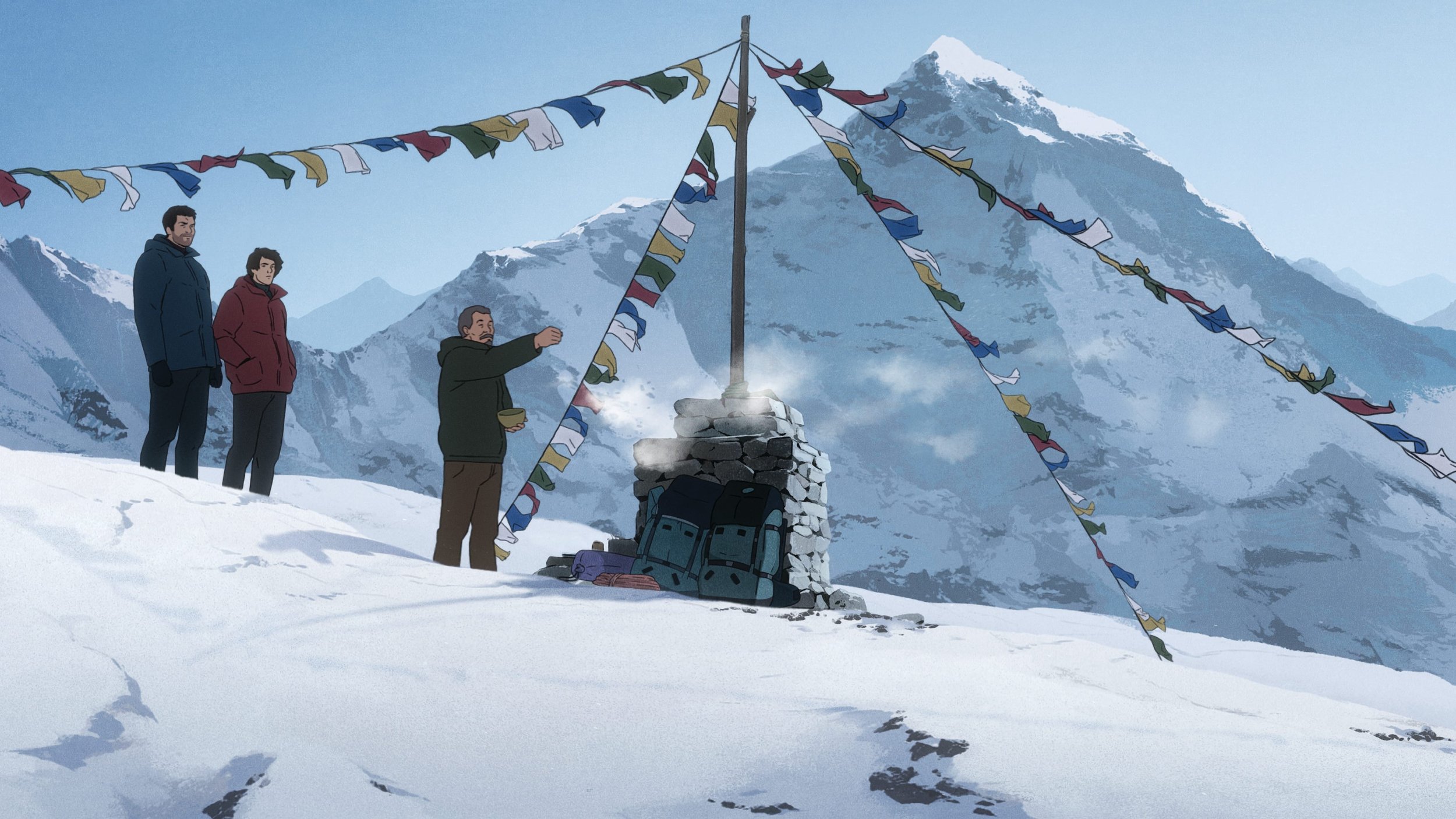The Summit of the Gods
netflixWhy do people do what they do? No matter what one's occupation is, there is some unseen driving force that drags everyone out of bed and into whatever life they have chosen for themselves. Patrick Imbert's The Summit of the Gods sees a young Japanese reporter named Makoto Fukamachi (Damien Boisseau) get the opportunity of a lifetime. A climber has found a camera on Everest that belonged to legendary climbers George Mallory and Andrew Irvine who went missing on the mountain and left the entire world wondering if they were able to be the first individuals to reach the summit or not. The camera ends up slipping out of Fukamachi's hands, but the climber who offered him the camera named Habu Joji (Eric Herson-Macarel) stays within the mind of Fukamachi. Fukamachi researches Habu – almost to the point of obsession – and eventually tracks down Habu to join him as a photographer for Habu's upcoming attempt to reach the summit of Everest himself.
The Summit of the Gods is a film with multiple questions. The film starts rather simple with its inquiries: did Mallory and Irvine reach the summit? This spirals, however, into a film that asks endless questions both of the physical and spiritual realms. As anyone who has a relationship to climbing, or at least watched Free Solo, will say: there is something irrationally magical about climbing. It becomes an obsession, with climbers putting their lives on the line to ultimately stand at the top of a large pile of rocks. There is a consistent desire to go higher, to go more dangerous, to push oneself further than ever imaginable yet, at the end of the day, the results offer very little to show for the effort. In a similar sense, Fukamachi's efforts feel the same. Habu isn't a widely profitable or desired story, yet still, he can't shake him. It is in this quest to understand desire and the power of this unseen force that drives the film to transcend just being a climbing mystery and instead become something much more powerful and enlightened.
Slowly and almost casually, the film asks some of life’s biggest questions: What is the purpose of life? Why do humans live how they do? What should one strive for in life? In a move that will undeniably frustrate many audience members, The Summit of the Gods has no intentions of answering any of these questions but instead presents them in a non-judgmental and honest way. It is hard not to relate to the moral expeditions of the film on an incredibly deep and spiritual level that pushes the audience in an incredibly personal way that many might not expect from a film of this nature. It isn't easy, it isn't nice, but it is honest and feels important.
This isn't to say that the film has nothing of substance to truly say, but answers are largely scarce within the feature. There is a particularly interesting conversation about the past vs the present that feels rather unique and moving. While Fukamachi begins by looking at the magic and icons of the past, he cannot help but be seduced by the magic and icons of today, which will ultimately become the magic and icons of the past for a future generation. It is an important reminder to look around and witness the power of the present which ultimately can hold the same power as the past which often gets respected in a more direct sense. There is also a rather bitter tale of consequence found within the film. Everyone who steps onto a mountain agrees to a certain list of dangers. They accept that the consequences can be fatal yet the ghosts of those who perish still haunt. Habu is tormented by ghosts and largely becomes desperate for closure. He might not know how to reach that closure, but he needs it or is willing to die trying. It is emotional and tragic seeing the burden he carries yet again, it feels all too real. Everyone carries around their ghosts and demons and while everyone might not have the same level of regret that Habu has, the film feels relatable and poignant to everyday life still.
It also would be criminal not to mention the beauty of the film. The animation is nothing short of stunning with the shots of the various mountains and displays of nature truly being seductive. It becomes something so much more than just rocks underneath hundreds of stars, there is a power to nature both within real life and the film that is present and moving which is important to translate through the film as it is a major driving force for its main characters. What is incredibly impressive is just how quickly these pristine showcases of beauty can turn into nightmares. The Summit of the Gods is brutal with the danger of climbing being horrifically clear. The film takes full use of its animation medium and plays with color and editing to provide some truly heart-stopping moments of tension and danger that feel urgent and legitimate. It truly feels like any wrong step could be the death of a main character and the stakes help engage the audience even further.
When it comes to animation within 2021, it is hard to find much better than The Summit of the Gods. A deeply personal and spiritual look at the human mind and how some view the world around them, the final product demands effort but ultimately feels beyond rewarding. Between this and Flee, adult animation is proving to be better than ever and one can hope the medium continues to give light to complex and layered expressions of the human condition like these.


